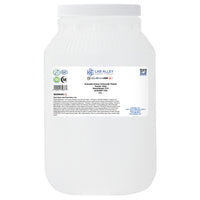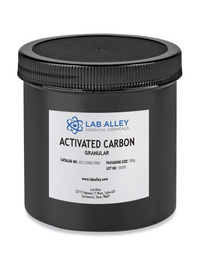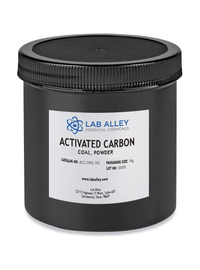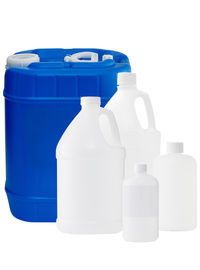Activated Carbon Food Grade
Adsorbent Material For Physical Separation Of Impurities
About Activated Charcoal
Activated charcoal is a form of non-graphite carbon that has been processed to enhance its microcrystalline internal porosity. Activated charcoal is a popular choice of adsorbent material for physical separation of impurities thanks to its high surface area and reactivity. It can effectively remove a wide range of pollutants including pesticides, herbicides, heavy metals, phenols, and chlorinated hydrocarbons. It is possible to derive activated carbon from any material containing a high concentration of carbon, including wood, charcoal, bone, or nut shells. The two basic processes for preparation are chemical or physical/gas activation. The processing method is usually dependent upon the starting material and the desired end product - granular or powdered form.
Recent environmental trends have further increased demand for this material. The diverse applications of activated charcoal include: air purification, gasoline vapor emission control in automobiles, cigarette filtration, and drinking water purification.
Common Uses and Applications
-
Water Purification: Activated carbon is widely used in water treatment processes to remove organic contaminants, odors, and colors. It can effectively remove impurities, chlorine, volatile organic compounds (VOCs), pesticides, and other chemicals from water.
-
Air Filtration: Activated carbon is utilized in air filters and purifiers to remove volatile organic compounds, odors, and harmful gases from indoor air. It is commonly used in industrial settings, vehicles, and home air purifiers.
-
Food and Beverage Industry: Activated carbon is utilized in the food and beverage industry for decolorization, deodorization, and purification purposes. It is commonly used in the production of sugar, edible oils, alcoholic beverages, and water filtration systems.
-
Gas and Vapor Treatment: Activated carbon is employed in gas masks and respirators to provide protection against toxic gases and vapors. It adsorbs and traps harmful chemicals, preventing them from being inhaled.
-
Chemical and Pharmaceutical Industries: Activated carbon plays a crucial role in various chemical and pharmaceutical processes. It is used for decolorization, purification, and removal of impurities from chemicals, solvents, and pharmaceutical intermediates.
-
Environmental Remediation: Activated carbon is used in soil and groundwater remediation to remove organic contaminants and pollutants. It can help clean up spills of petroleum products, pesticides, and other harmful substances.
-
Gold Recovery: Activated carbon is employed in the extraction of gold from cyanide solutions in the mining industry. It adsorbs the gold complex, allowing for its separation and recovery from the solution.
-
Industrial Processes: Activated carbon finds applications in various industrial processes, including catalyst support, solvent recovery, gas purification, and removal of impurities from chemicals and gases.
-
Energy Storage: Activated carbon is used in supercapacitors and batteries as an electrode material. Its high surface area enables efficient storage and release of electrical energy.
-
Personal Care and Beauty Products: Activated carbon is used in toothpaste, face masks, cleansers, and other personal care products. It helps in the adsorption of impurities, toxins, and excess oil from the skin and teeth.
- View all uses of Activated Charcoal
Industries
- Food Industry
- Automobile Industry
- Environmental Industries
- Chemical Manufacturers
- Tobacco Industry






